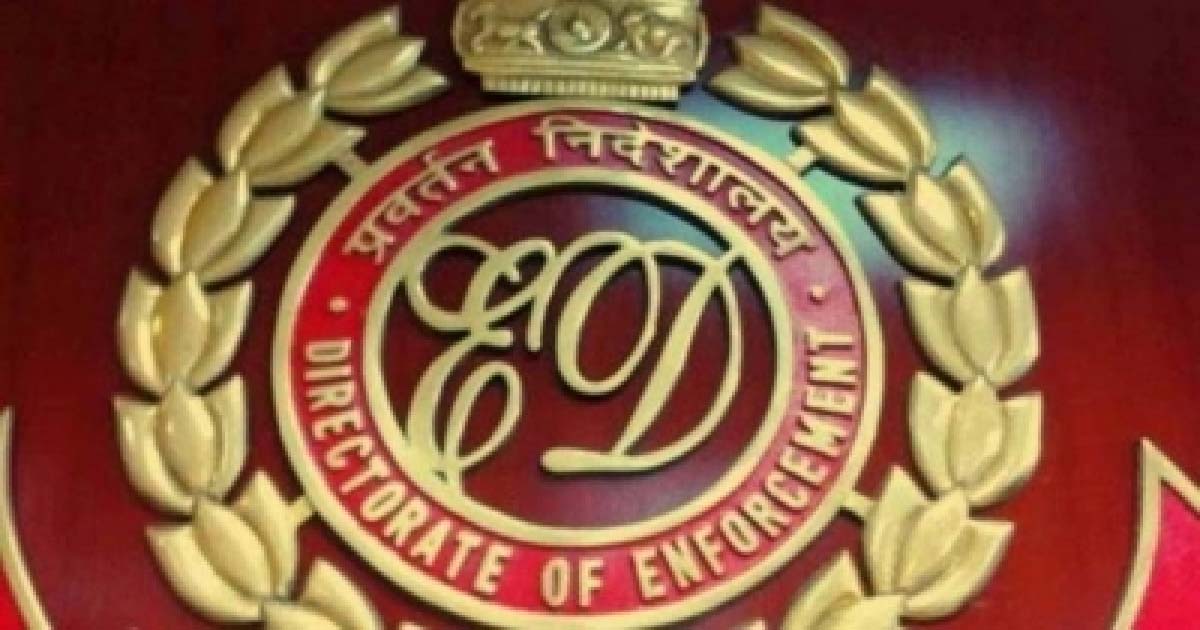Business
NBFC PCA to bring parity between banks, non-banks: Ind-Ra
The prompt corrective action (PCA) framework for non-banking financial companies (NBFCs) will bring a further parity in terms of the regulations between banks and non-banks, said India Ratings and Research (Ind-Ra).
Accordingly, the ratings agency cited that the trend will be supported on the back of increased size and scale of NBFCs and interconnectedness with banks, along with the scale-based regulation implemented in October 2021 and the alignment of asset quality classifications implemented in November 2021.
Recently, the Reserve Bank of India introduced the PCA framework for NBFCs and it will come into effect from October 1, 2022, based on the financial position of NBFCs on or after March 31, 2022.
“It also establishes a regulatory course of action in an event of a breach of certain parameters, thus acting as an early warning signal.”
“In case of any breach, the NBFCa¿s performance will be measured over four consecutive quarters on risk threshold parameters to declassify the NBFC placed under PCA.”
As per Ind-Ra, NBFCs breaching any of the risk threshold have time to course correct till March 2022 as the guidelines will be based on year-end numbers.
“NBFCs with net non-performing assets of 6 per cent and higher may have to make higher provisions or sell assets to asset reconstruction companies during 2HFY22 to bring in the ratio outside the threshold, in line with the guidance.”
“This may impact profitability and capital buffers.”
As of now, the agency said most of the large NBFCs are comfortably poised to comply with the regulations.
“Many NBFCs have raised capital before and during pandemic, leading to an improvement in their capital buffers, and carried excess expected credit loss provisions to navigate the pandemic impact on asset quality.”
“However, any increase in the asset quality challenges in form of slippage from the restructured book and book benefitted through ‘Emergency Credit Linked Guarantee Schemes’ will led to NBFCs turning cautious in terms of increasing provisions to maintain the risk threshold within the permitted limits on the asset quality side.”
According to Ind-Ra, this PCA framework will bring greater clarity in terms of the regulator’s approach on NBFCs breaching threshold limits on capital buffers or facing heightened credit risk.
Business
Indian PSU oil companies secure ‘historic’ deal to import 2.2 MTPA LPG from US: Puri

New Delhi, Nov 17: In a key development, Indian public sector oil companies have finalised a deal for imports of around 2.2 million tonnes per annum (MTPA) LPG for the contract year 2026, to be sourced from the US Gulf Coast, Petroleum and Natural Gas Minister Hardeep Singh Puri said on Monday.
In a post on X social media platform, he said that in a historic first, “one of the largest and the world’s fastest growing LPG market opens up to the United States”.
“In our endeavour to provide secure affordable supplies of LPG to the people of India, we have been diversifying our LPG sourcing,” the minister said.
“In a significant development, Indian PSU oil companies have successfully concluded a 1-year-deal for imports of around 2.2 MTPA LPG, close to 10 per cent of our annual imports – for the contract year 2026, to be sourced from the US Gulf Coast – the first structured contract of US LPG for the Indian market,” Puri informed.
This purchase is based on using Mount Belvieu as the benchmark for LPG purchases and “a team of our officials from Indian Oil, BPCL and HPCl had visited the US and engaged in discussions with major US producers over the last few months, which have been concluded now”.
Under the leadership of PM Modi, PSU oil companies have been providing LPG at the lowest global prices to all our mothers and sisters.
“Even as global prices soared by over 60 per cent last year, PM Modi ensured that our Ujjwala consumers continued to receive LPG cylinder at just Rs 500-550 whereas the actual cost of the cylinder was over Rs 1,100,” said the minister,
The Government of India incurred the cost of over Rs 40,000 crore last year “in order to ensure our mothers and sisters did not feel the burden of rising international LPG prices”, he mentioned.
Business
Indian stock market opens higher as investors cheer NDA’s Bihar win; Bank Nifty hits new record

Mumbai, Nov 17: The Indian stock market began the week on a positive note as both the Sensex and Nifty opened in the green on Monday.
The rebound comes as investors show confidence amid the NDA’s win in the Bihar Elections 2025 and strong movement in select stocks.
The Sensex was seen trading at 84,759, up 196 points or 0.23 per cent. The Nifty also moved higher to 25,963, gaining 53 points or 0.21 per cent.
“On the weekly chart, the Nifty has shown a firm recovery from key support zones, closing above 25,900 and signaling a sideways-to-bullish bias,” experts said.
“Immediate support is placed at 25,800 and 25,700, offering opportunities to accumulate on dips, while resistance levels are seen at 26,000 and 26,100 — the latter acting as a critical breakout point. A sustained move above 26,100 could open the door for an upside extension toward the 26,250–26,400 zone in the coming weeks,” they added.
Major Sensex gainers in early trade included Kotak Bank, L&T, Titan Company, M&M, SBI, Tech Mahindra, and ITC, all rising up to 1 per cent.
On the other hand, Tata Motors PV was the biggest loser, slipping 6 per cent. Other laggards included Eternal, Ultratech Cement, TCS, Power Grid, and Infosys.
The broader market sentiment was also positive. The Nifty MidCap index rose 0.45 per cent, while the Nifty SmallCap index climbed 0.48 per cent.
Among sectoral indices, the Bank Nifty touched a fresh lifetime high of 58,830 after rising 0.5 per cent. The Nifty PSU Bank index gained 1.2 per cent, while the Nifty Private Bank and FMCG indices added 0.5 per cent each.
The Nifty Financial Services index also inched up 0.4 per cent.
Analysts said that the market opened with renewed strength, supported by banking stocks and improving investor sentiment.
“Q2 results declared so far indicate an uptrend in earnings growth. Net profits have grown by 10.8 per cent, which is the best in the last six quarters. This is a beat over earlier estimates. The present trends in consumption indicate that earnings will further improve in Q3,” market watchers mentioned.
Business
ED arrests real estate firm MD in PMLA case, accused sent to 14-day custody

New Delhi, Nov 15: The Enforcement Directorate (ED) has arrested Ocean Seven Buildtech Pvt. Ltd. (OSBPL) Managing Director Swaraj Singh Yadav after conducting searches at nine locations across Delhi-NCR and other regions in a money-laundering probe under the Prevention of Money Laundering Act (PMLA), 2002, an agency statement said on Saturday.
The action stems from allegations that Yadav diverted and laundered funds collected from homebuyers across multiple projects, including those under the Pradhan Mantri Awas Yojana (PMAY).
The searches on Thursday led to the recovery of Rs 86 lakh in cash, suspected to be proceeds of crime, along with incriminating documents and digital evidence.
According to the ED, Yadav orchestrated a large-scale diversion of homebuyer funds through fraudulent cancellation and resale of units at inflated prices, cash-based premiums collected outside banking channels, and misuse of escrow accounts.
He allegedly routed substantial sums into shell entities and concealed cash proceeds with relatives, the ED statement said.
Investigators also found a pattern of rapid liquidation of assets held personally and through company entities in Gurugram, Maharashtra, and Rajasthan, which the agency believes was intended to secure illicit gains and evade legal scrutiny.
His wife and children have already relocated to the United States, the probe revealed.
The agency said Yadav operated a dual-payment mechanism in the resale of PMAY flats and even in the sale of parking spaces — routing only nominal amounts through banks while collecting the bulk in cash. These activities form part of a wider probe linked to multiple FIRs alleging cheating, forgery, and other predicate offences.
Following his arrest, Yadav was produced before the Court of ASJ-06 at Patiala House Courts on Friday, in compliance with Supreme Court directions.
After detailed submissions from both sides and a pass-over granted to allow him legal assistance, the court sent him to ED custody for 14 days, until November 28.
The agency has been directed to produce him before the court at 2 p.m. on the date of expiry of remand.
The ED said it is pursuing further investigation to trace, freeze, and attach assets acquired from the laundered funds, to ensure recovery and restitution to affected homebuyers.
-

 Crime3 years ago
Crime3 years agoClass 10 student jumps to death in Jaipur
-

 Maharashtra1 year ago
Maharashtra1 year agoMumbai Local Train Update: Central Railway’s New Timetable Comes Into Effect; Check Full List Of Revised Timings & Stations
-

 Maharashtra1 year ago
Maharashtra1 year agoMumbai To Go Toll-Free Tonight! Maharashtra Govt Announces Complete Toll Waiver For Light Motor Vehicles At All 5 Entry Points Of City
-

 Maharashtra1 year ago
Maharashtra1 year agoFalse photo of Imtiaz Jaleel’s rally, exposing the fooling conspiracy
-

 National News1 year ago
National News1 year agoMinistry of Railways rolls out Special Drive 4.0 with focus on digitisation, cleanliness, inclusiveness and grievance redressal
-

 Maharashtra1 year ago
Maharashtra1 year agoMaharashtra Elections 2024: Mumbai Metro & BEST Services Extended Till Midnight On Voting Day
-

 National News1 year ago
National News1 year agoJ&K: 4 Jawans Killed, 28 Injured After Bus Carrying BSF Personnel For Poll Duty Falls Into Gorge In Budgam; Terrifying Visuals Surface
-

 Crime1 year ago
Crime1 year agoBaba Siddique Murder: Mumbai Police Unable To Get Lawrence Bishnoi Custody Due To Home Ministry Order, Says Report












